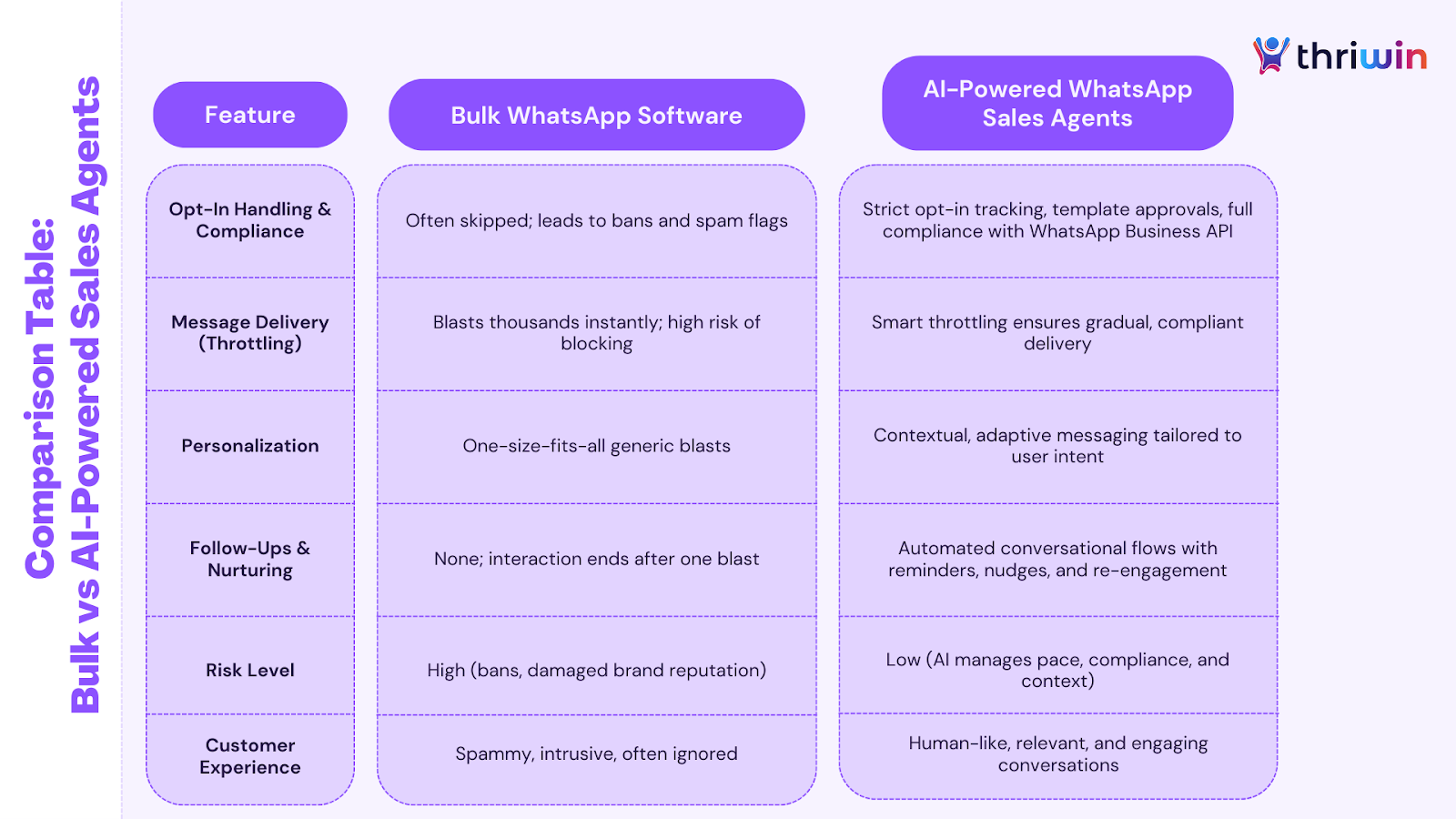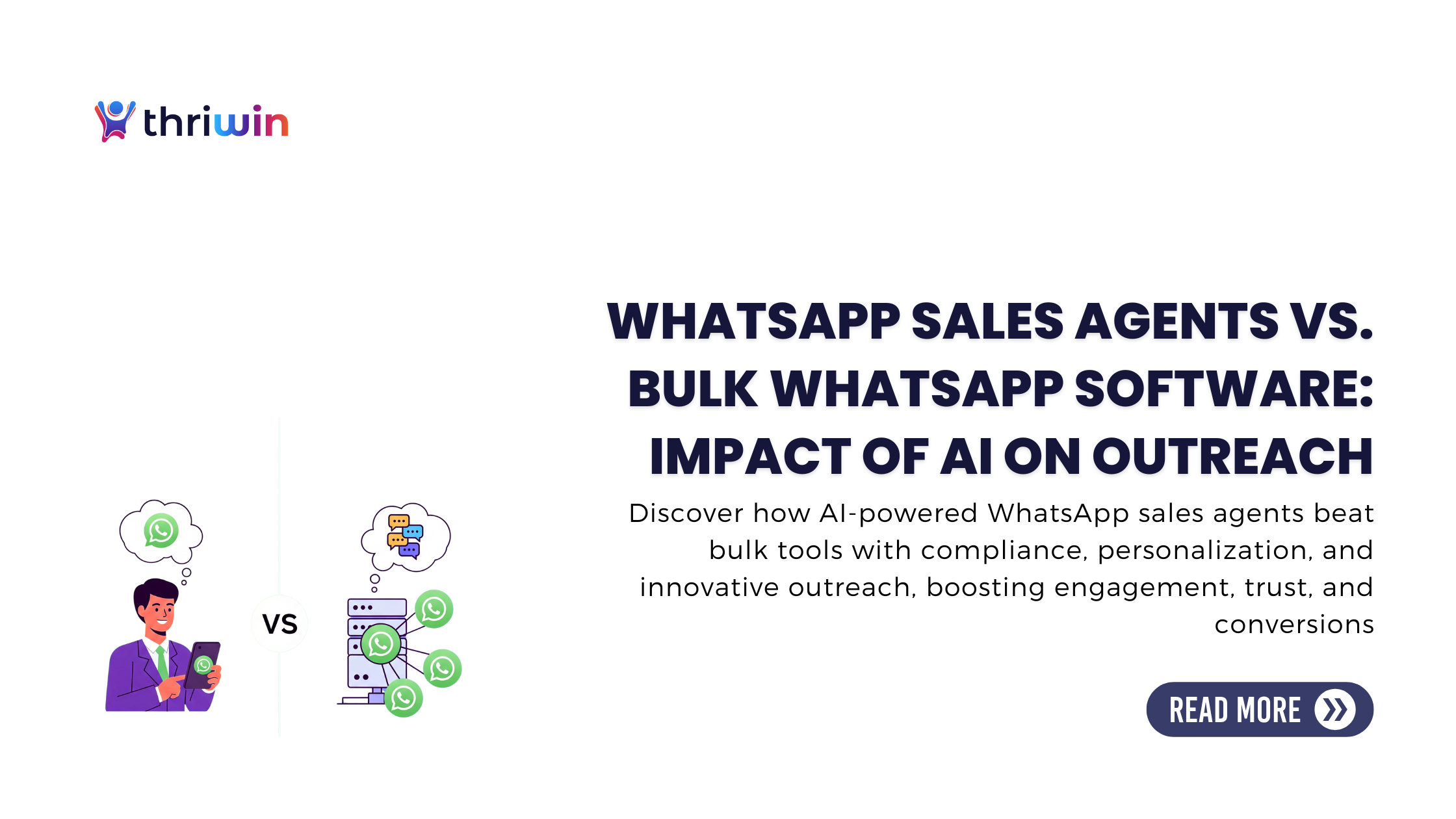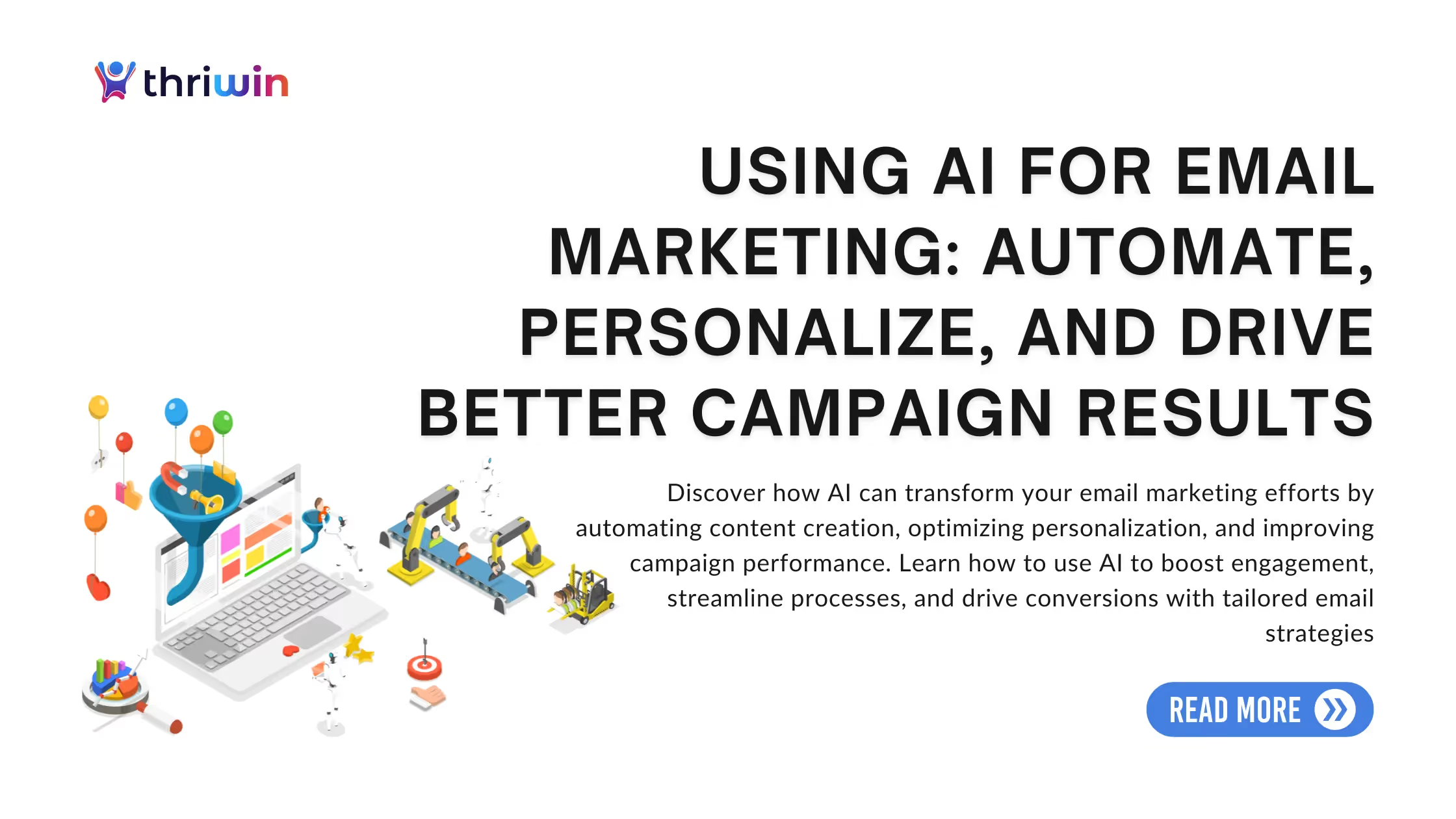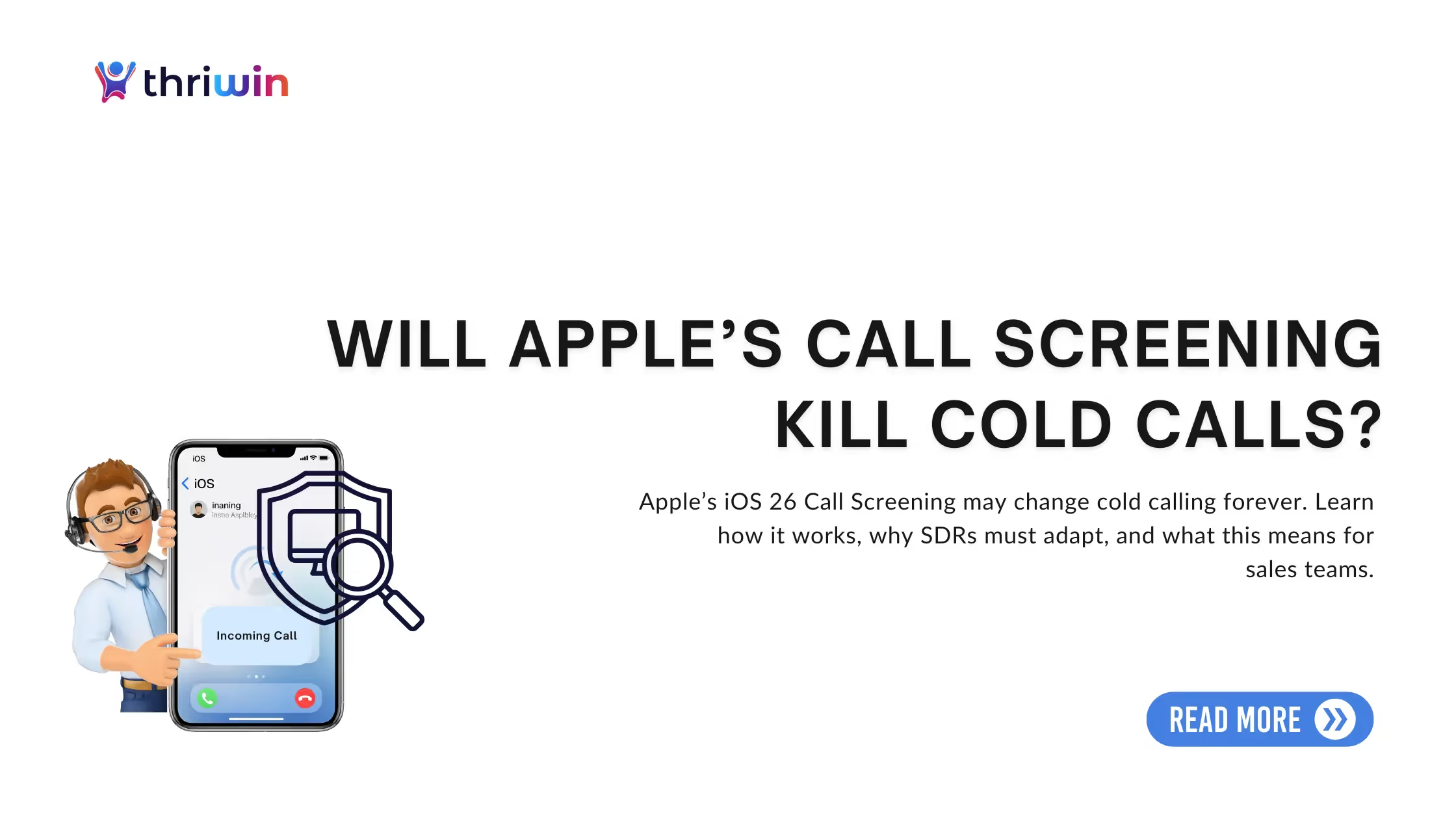Imagine sending thousands of generic WhatsApp messages that go ignored or even get your number blocked. Now compare that to an AI-powered WhatsApp agent that manages opt-ins, sends messages at the right pace, and follows up like a real person. That’s the new reality. Today’s WhatsApp marketing software is moving away from bulk broadcast tools and towards compliant, conversational outreach powered by AI. In this article, we’ll explore why this shift matters and how AI agents make WhatsApp sales smarter, safer, and far more effective.
The Evolution of WhatsApp Marketing Software
Over the past decade, WhatsApp has grown from a simple messaging app into one of the most powerful customer engagement platforms. With more than 2 billion active users, businesses quickly saw the potential of using WhatsApp for sales and marketing. This gave rise to early bulk messaging tools that focused on scale over quality. But as the platform matured, so did the risks, compliance requirements, API restrictions, and customer expectations, forcing companies to rethink their approach. Today, the focus is shifting from broadcasting messages to building agent-driven, conversational experiences that are both scalable and compliant.
From Broadcast Blasts to Compliance Cracks
Traditional bulk WhatsApp software promised one thing: mass outreach at the click of a button. Businesses could upload a contact list and send out thousands of identical messages in seconds. While this might have worked briefly, the cracks quickly began to show:
- High risk of bans and number blocking due to violation of WhatsApp’s Business API policies.
- Message throttling limits restricted how many users could be contacted in a given period.
- Low personalization, with recipients receiving generic, irrelevant blasts that felt more like spam than genuine engagement.
For example, tools like SleekFlow and YCloud were often marketed as quick fixes for mass communication. But businesses using them soon realized that what they gained in speed, they lost in trust, compliance, and long-term customer relationships.
Enter AI Agents and Conversational Flows
The next wave of WhatsApp marketing software doesn’t just send messages; it acts like a sales agent. Powered by AI, these tools can:
- Understand natural language, so customers don’t feel like they’re talking to a bot.
- Adapt to context, remembering past interactions and personalising follow-ups.
- Handle opt-ins and regulatory compliance, making sure outreach stays within WhatsApp’s guidelines.
- Automate handoffs, transferring complex queries seamlessly to human sales reps when needed.
Platforms like Wapikit and Gallabox are leading this transition. Instead of just pushing information, they create two-way conversational flows that nurture leads, answer questions, and guide prospects toward conversion, all without spamming or risking account suspension.
In short, where bulk tools focus on volume, AI-powered agents concentrate on quality, compliance, and conversion.
Key Differences: Bulk Software vs AI-Powered Sales Agents
The real turning point in WhatsApp marketing software comes when you compare the broadcast mentality of bulk tools with the compliance-driven, customer-centric approach of AI agents. While both aim to reach prospects at scale, the methods and results are drastically different.
- Opt-In Handling & Compliance
Bulk WhatsApp tools often overlook the importance of user consent, blasting messages to cold numbers without prior approval. This not only risks WhatsApp account bans but also damages brand reputation. AI-powered sales agents, on the other hand, work within the WhatsApp Business API framework:
- They ensure template approvals before outreach.
- Track opt-in records to prove compliance.
- Follow strict regulatory guidelines to avoid accusations of spam.
Tools like Bot Space and Wati.io emphasise compliance as a non-negotiable foundation for sustainable WhatsApp outreach.
2. Throttling & Smart Delivery
One of the most significant weaknesses of bulk senders is that they send thousands of messages instantly, which WhatsApp’s algorithms flag as suspicious. AI agents avoid this by introducing intelligent throttling:
- Messages are delivered at controlled intervals.
- AI adapts pace based on engagement rates and system warnings.
- This dramatically reduces the chance of number blocking or shadow bans.
Instead of shouting into the void, AI agents deliver messages like a patient salesperson who knows timing is everything.
3. Conversational Follow-Ups & Lead Nurturing
Bulk tools end the interaction once a message is sent; it’s essentially a one-way broadcast. AI agents flip this model by turning WhatsApp into a proper conversation channel:
- They can manage multi-step flows (e.g., welcome → product info → demo booking).
- Qualify leads automatically using contextual Q&A.
- Trigger personalized follow-ups if a user doesn’t respond or shows interest later.
Instead of being ignored, prospects feel like they’re talking to an honest representative who remembers them, improving both conversion rates and customer trust.
📊 Comparison Table: Bulk vs AI-Powered Sales Agents

Why AI-Driven WhatsApp Agents Outperform Bulk Tools
The shift from traditional bulk messaging to AI-powered WhatsApp sales agents isn’t just a minor upgrade; it’s a transformation. Where bulk tools rely on scale, AI agents focus on personalisation, compliance, and engagement, ensuring that outreach feels human while remaining efficient.
24/7 Availability and Responsiveness
Unlike human reps, AI agents never sleep. They respond instantly to inquiries, ensuring customers don’t wait hours (or days) for answers. Platforms like Wapikit showcase how always-on conversational agents can boost engagement rates by reducing response times to seconds. This round-the-clock availability builds trust and increases the likelihood of conversions.
The Personal Touch, Human-Like Context & Adaptation
One of the most significant advantages of AI-driven WhatsApp agents is their ability to understand context in a way bulk messaging never could. Instead of treating every customer the same, these agents remember past interactions and continue the conversation naturally. They can even interpret media such as photos or voice notes, making the exchange feel more personal and interactive. Over time, the system learns to tailor recommendations to each individual, which creates a sense of genuine care rather than generic promotion. As highlighted by Geeky Gadgets and The Wall Street Journal, this evolution makes customers feel as though they are speaking with a knowledgeable human rather than just responding to an automated script.
Integration & Scalability
AI agents aren’t standalone tools; they integrate seamlessly with CRM platforms, analytics dashboards, and omnichannel systems. Platforms such as Respond.io and Gupshup allow businesses to orchestrate conversations across channels, WhatsApp, email, and SMS, while keeping customer data unified. This makes AI outreach infinitely scalable without losing the personal touch.
Real-Time Analytics & Insights
Beyond scalability, AI agents generate actionable insights. By analysing open rates, engagement patterns, and sentiment, businesses can continuously optimise campaigns. This is a key advantage bulk tools lack; they push messages but don’t learn from outcomes.
Risks & Considerations in Deploying AI Agents
Like any powerful tool, AI agents come with responsibilities. They can transform outreach when used well, but over-reliance without the right safeguards can quickly backfire. Businesses need to understand the risks and build structures that keep automation in check.
Trust, Errors & the Human Touch
AI agents are not perfect. They can misinterpret context, deliver the wrong message, or miss subtle cues in a conversation. The Air Canada incident showed how an AI assistant provided misleading information to a passenger, creating both reputational and legal problems. This highlights the importance of regular monitoring, training, and ensuring every AI system has a clear path to escalate queries to human agents when things get too complex.
Balancing Autonomy with Oversight
The best use of AI is when it complements, not replaces, human decision-making. Businesses should set up review loops, create escalation triggers for sensitive conversations, and carry out regular audits of AI behaviour. While an AI sales agent might manage FAQs with ease, it will often require human support when handling negotiations, pricing, or emotionally charged situations. Oversight makes automation more innovative and more reliable.
Data Privacy & Security
AI agents process large volumes of personal information, from phone numbers to customer preferences. Mishandling this data can have serious consequences, from heavy GDPR fines to broken customer trust. Secure integrations, encrypted data flows, and transparent opt-in processes are essential to maintaining the trust of both regulators and customers.
Managing Customer Expectations
The most overlooked risk lies in how customers perceive AI conversations. Some users are comfortable chatting with an automated agent, but others may feel frustrated if they believe they are talking to a person only to discover it’s a bot. Businesses should be transparent, letting customers know when they’re speaking with an AI agent and when a human will step in. This honesty helps manage expectations and prevents the disappointment that comes from feeling misled.
With these challenges in mind, many businesses often ask how AI-powered agents differ in practice, how to transition safely, and whether they really deliver results. Let’s address some of the most common questions.
- What specific features do AI-powered WhatsApp sales agents offer that improve customer engagement compared to bulk software?
AI-powered WhatsApp sales agents use natural language processing, contextual memory, and intelligent throttling to create two-way conversations. Unlike bulk software, they personalize responses, manage opt-ins for compliance, and follow up intelligently. This makes interactions feel human-like and relevant, boosting engagement and trust instead of being flagged as spam.
- How can businesses effectively transition from using bulk messaging tools to adopting AI-powered sales agents?
The transition begins with a compliance-first approach: migrating campaigns to the official WhatsApp Business API, securing opt-ins, and updating templates. Next, businesses should map their customer journey and design conversational flows instead of one-off blasts. Training AI agents with FAQs, product data, and CRM insights ensures a smooth rollout. A hybrid model - AI for FAQs and lead qualification, humans for high-value interactions - helps teams adapt without disruption.
- What are some real-world success stories or case studies demonstrating the effectiveness of AI agents in WhatsApp marketing?
Several brands have seen measurable gains:
- E-commerce platforms using AI agents for abandoned cart reminders achieved up to 30% recovery rates, far higher than bulk blast CTRs.
- EdTech companies deploying conversational flows reported 3x more demo bookings compared to cold WhatsApp outreach.
- SMBs in India adopting tools like Wati.io and Gallabox cut ban risks by 40% while improving engagement scores.
These examples show how AI agents transform WhatsApp from a broadcast channel into a scalable, compliant sales engine.

Best Practices for AI-Powered WhatsApp Outreach
AI sales agents are most effective when designed with a clear strategy, not just for automation's sake. To truly maximise the value of WhatsApp marketing software, businesses should focus on creating experiences that are compliant, personalised, and seamlessly aligned with customer expectations.
Map Your Ideal Customer Journey
Not every conversation requires an automated response. The key is identifying the points where AI can add real value versus where a human should step in. For example, Cognism highlights how AI agents can effectively manage lead qualification and FAQs, while complex negotiations should be escalated to human representatives. Mapping this journey ensures AI support feels natural and not forced.
Build Knowledge-Driven Conversational Flows
The effectiveness of an AI agent depends heavily on the data it’s trained with. When equipped with product catalogues, FAQ repositories, CRM insights, and even the ability to interpret images or voice notes, AI responses become highly relevant and customer-focused. Without this foundation, conversations risk becoming as generic as bulk blasts.
Monitor Performance and Continuously Refine
AI-driven outreach should never be a “set and forget” exercise. Regularly track key performance indicators like response times, resolution rates, and customer sentiment. Insights from these metrics allow businesses to retrain their models, refine conversational flows, and keep the AI aligned with evolving customer needs.
Combine Automation with Human Oversight
Even the most intelligent AI cannot replace human empathy. The most effective systems always include handoff triggers that connect customers with human agents when necessary, whether it’s for a callback, a nuanced question, or a high-value purchase decision. This hybrid approach ensures conversations remain efficient without losing the personal touch.
Prioritise Compliance and Transparency
AI agents must operate within the guardrails of WhatsApp’s policies and broader privacy regulations. Missteps here can lead to bans or fines. According to Wati.io, businesses that clearly communicate opt-in requirements and ensure approved message templates are far more likely to maintain long-term success. Transparency also builds trust; customers should know when they’re engaging with an AI agent and when a human will step in.
Leverage Analytics for Smarter Conversations
Modern AI-powered WhatsApp tools don’t just automate; they provide powerful analytics. Platforms like Respond.io show how businesses can use engagement data to identify drop-off points, measure campaign ROI, and adjust flows in real time. By acting on these insights, companies can maintain sharp, adaptive, and customer-centric outreach.
Thriwin: The Future of AI-Powered WhatsApp Outreach
Thriwin reimagines WhatsApp outreach, not as another WhatsApp marketing software, but as a complete methodology that transforms the channel into an autonomous, agentic playbook. Instead of simply sending out messages, Thriwin enables businesses to deploy intelligent, self-guided sales agents that operate with precision and compliance.
For leadership teams, this means your WhatsApp strategy gains four distinct advantages. First, autonomy, Thriwin manages opt-ins, throttles delivery intelligently, and initiates follow-ups without manual effort. Second, compliance, it works seamlessly with official APIs, ensuring that every campaign respects template approvals and opt-in requirements. Third, conversational intelligence, the system adapts to context, responds naturally to inquiries, and integrates with your CRM for smooth handoffs to human reps when necessary. Finally, Thriwin offers a scalable playbook, a standardised yet flexible framework that keeps evolving, learning, and improving with every interaction.
The result is outreach that is not only efficient but also engaging, compliant, and human-like. With Thriwin, WhatsApp stops being a one-way broadcasting tool and becomes a strategic growth engine that works tirelessly in the background. Your sales team gains more time to focus on high-intent conversations, while the AI agent ensures no opportunity slips through the cracks. In other words, Thriwin makes your WhatsApp outreach not just active, but truly autonomous.
FAQs
1. What is WhatsApp marketing software, and how does it work?
It’s a tool that lets businesses send messages on WhatsApp. Modern versions use the official API, track opt-ins, and create AI-driven conversational flows.
2. Is bulk WhatsApp software safe to use for business outreach?
No. Bulk tools often violate WhatsApp policies, leading to bans and poor deliverability. API-compliant or AI-powered agents are safer options.
3. How are AI-powered WhatsApp sales agents different from bulk senders?
AI agents manage opt-ins, pace delivery, and hold two-way conversations, while bulk senders simply blast generic, one-way messages.
4. Can WhatsApp marketing software integrate with CRMs and other tools?
Yes. Modern platforms integrate with CRMs and omni-channel tools like Respond.io, helping teams centralise data and scale outreach.
5. What is the best way to stay compliant when using WhatsApp for marketing?
Use approved templates, keep opt-in records, and follow privacy laws. Platforms like Wati.io make compliance easier.
%201.svg)





